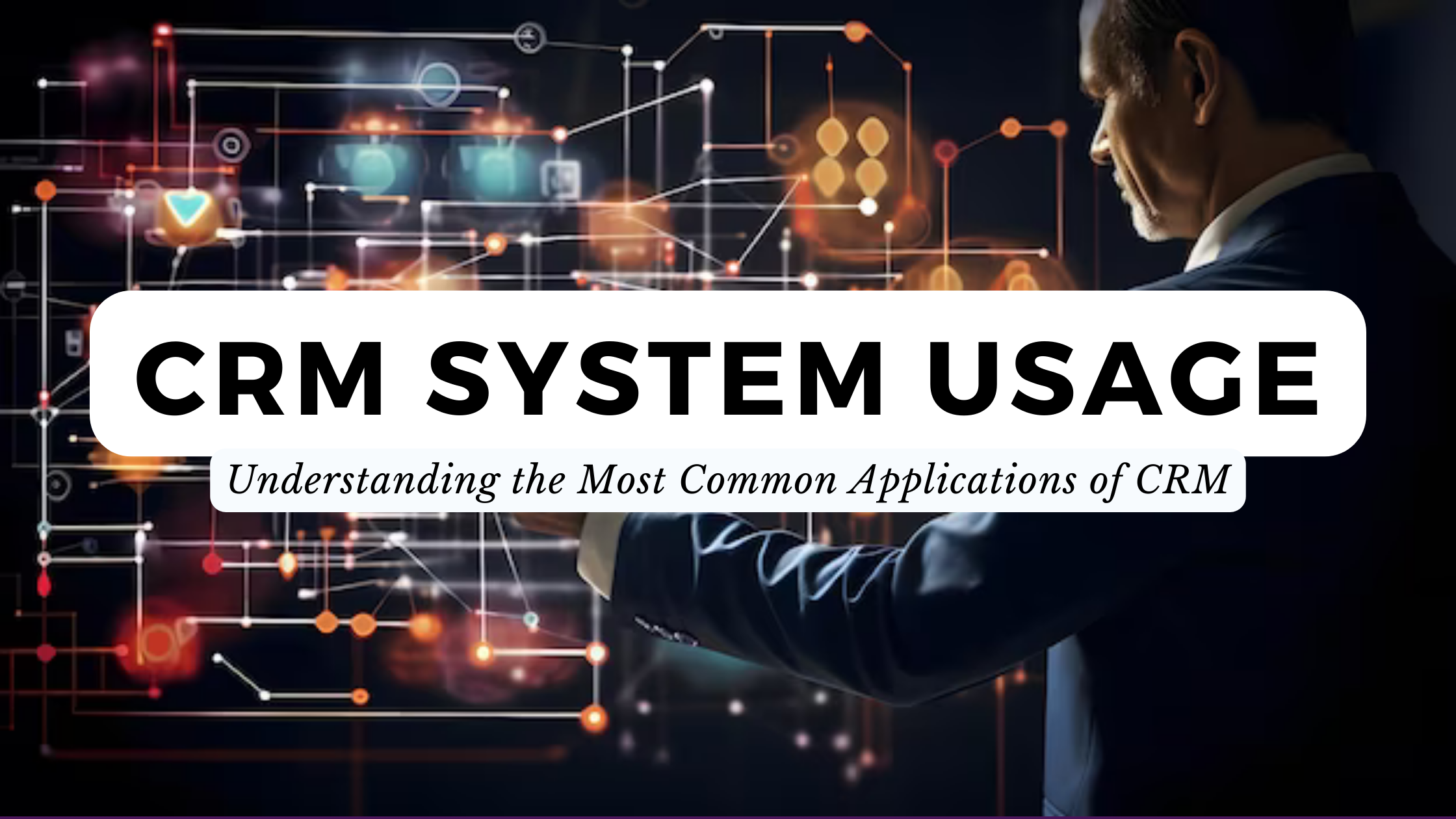CRM System Usage: Understanding the Most Common Applications of CRM
- Proposal Software Customer Relationship Management


CRM System Usage: Understanding the Most Common Applications of CRM
Customer Relationship Management (CRM) systems are essential tools for businesses of all sizes. They help companies manage and analyze customer interactions and data throughout the customer lifecycle, with the goal of improving business relationships, assisting in customer retention, and driving sales growth1234. Here are some of the most common applications of CRM systems:
1. Sales and Lead Management
CRM systems provide a structured and detailed approach to sales and lead management. They allow businesses to track potential customers and clients as “leads”, add information as they work on convincing that customer to use their product or service, and then turn that lead into a “deal” once they’ve decided to buy567.
2. Marketing Automation
CRM systems can automate repetitive tasks in marketing, such as sending out emails to different customer segments. This automation saves time and ensures that the right message is reaching the right audience at the right time67.
3. Customer Service and Support
CRM systems can be used to improve customer service and support. They provide a platform for tracking customer interactions, managing customer support tickets, and providing personalized assistance26.
4. Analytics and Reporting
CRM systems provide robust analytics and reporting tools. Businesses can use these tools to analyze customer behavior, measure and forecast sales, and gain insights into business performance67.
5. Integration with Other Systems
CRM systems can integrate with other business systems and tools, such as ERP systems, social media channels, and email platforms. This integration provides a more comprehensive view of customers and enhances the ability to better serve them26.
Now, let’s take a look at some of the relevant SaaS products for CRM:
- Salesforce – Salesforce is a robust CRM solution suitable for companies of any size. It delivers sales and customer service capabilities for both B2B and B2C domains8. Official Website
- Microsoft Dynamics 365 – Microsoft Dynamics 365 is a comprehensive CRM solution that helps businesses improve their workflows, increase sales productivity, and scale their operations9. Official Website
- Zoho CRM – Zoho CRM is an online CRM system that manages sales, marketing, and support in one platform9. Official Website
- monday.com – monday.com is a work OS that powers teams to run processes, projects, and workflows in one digital workspace9. Official Website
- Freshworks – Freshworks offers modern business software for automating IT, customer service, and support, and providing the best employee experience9. Official Website
- SugarCRM – SugarCRM is a customer relationship management platform that delivers high-definition customer experience9. Official Website
- Pipedrive – Pipedrive is a web-based sales CRM that helps sales teams work more efficiently9. Official Website
Conclusion
CRM systems are powerful tools that can transform the way businesses interact with their customers. They streamline processes, improve efficiency, and provide valuable insights that can drive strategic decision-making. By understanding the common applications of CRM systems and exploring the various SaaS products available, businesses can choose a CRM system that best fits their needs and enhances their ability to serve their customers.
Relevant links:
- What is a CRM? Beginner’s guide to CRM software | Zapier
- Customer relationship management (CRM)— what it is, how it works, and …
- What is CRM? – Salesforce
- How to Use a CRM: The Ultimate Guide – HubSpot Blog
- Types Of CRM Applications Explained: Which One Is Best For You? – Forbes
- Top 5 CRM Applications and Examples – Evolved Metrics
- Salesforce: The Customer Company – Salesforce.com US
- What is Dynamics 365 | Microsoft Dynamics 365
- Zoho CRM | Top-rated Sales CRM Software by Customers
- monday.com: Where Teams Get Work Done
- Innovative Software for Business Needs | Freshworks
- #1 Rated CRM Platform | CRM Software & Tools | SugarCRM
- Sales CRM & Pipeline Management Software | Pipedrive








